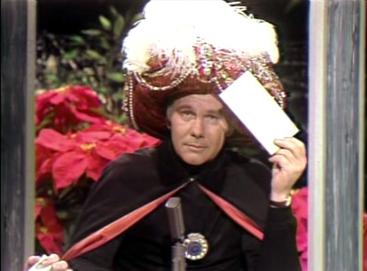Extrasensory perception (ESP) is an alleged type of psi phenomenon. ESP is an umbrella term for many types of alleged paranormal phenomena (i.e. clairvoyance) but often refers to the belief in telepathy.

Some non-Catholic Christians have a strongly unfavorable reaction to this idea, saying ESP is the workings of Satan, a delusion or evidence of so-called mental illness.
Other folks say that seemingly mystical experiences have natural explanations, such as keen observation, empathy, or psychological factors. It is prudent to be as rational and empirical as possible regarding ESP to rule out shams and naive mistakes. But habitually taking an extreme naturalistic position is arguably just as misguided as esoteric fanaticism.
We also have those who see ESP as a joke. Going as far back as Johnny Carson, not a few late-night TV shows have capitalized on charlatans and a general disbelief of ESP and other paranormal ideas.
But ESP isn’t always a joke, evil or kooky for everyone.

In Catholicism some advanced saints claim to have been given similar gifts, usually called the reading of hearts. Indeed, some Catholic mystics like St. Faustina Kowalska claim to know another’s thoughts and feel their emotions near or at a distance with no observable cues.¹
The New Catholic Encyclopedia says this about that the “reading of hearts”:
The knowledge of the secret thoughts of others or of their internal state without communication is known as reading of hearts. The certain knowledge of the secret thoughts of others is truly super-natural, since the devil has no access to the spiritual faculties of men and no human being can know the mind of another unless it is in some way communicated. But knowledge of the secrets of another’s heart may be conjectured by the devil and transmitted to a person, or they may be surmised by a deluded individual who takes his conjectures to be supernatural illuminations.²
From the above, it should be clear that sensible Catholics are cautious when it comes to mysticism. Central to Catholic mysticism are the somewhat related ideas of discernment and “the discernment of spirits.” Discernment is said to be a divine gift and acquired ability that enables one to differentiate supernatural experiences and abilities that come from God vs. those that are not from God.

However, not all Catholics fully understand the idea of discernment and some Catholics seem uncomfortable with the concept of mysticism, despite the official teachings of their worldwide religion. In actual practice, we find a spectrum of beliefs within the Catholic Church, among both laity and clergy.³
¹ Non-Catholic mystics have also allegedly demonstrated or claimed to possess similar faculties. Da Free John, Rudolf Steiner, Paramahansa Yogananda, and Sri Aurobindo being more recent examples in the long and varied history of mysticism.
² AUMANN, J. “Mystical Phenomena.” New Catholic Encyclopedia. 2nd ed. Vol. 10. Detroit: Gale, 2003. 105-109. Gale Virtual Reference Library. Web. 29 Apr. 2012.
³ This is based on ongoing conversations with priests, monks, and laity from 1991 to the present.
Related » Alien Possession Theory, Paranormal, James Randi, Psychokinesis, Remote Viewing, Rupert Sheldrake

Minor tweak for clarity –
But habitually taking such an extreme position
changed to
But habitually taking an extreme naturalistic position
LikeLike